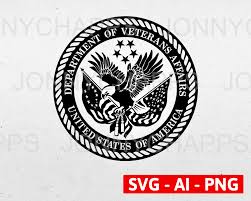Veterans Affairs is an important part of the U.S. government that provides a wide range of services and benefits to veterans of the United States Armed Forces and their families. The Department of Veterans Affairs (VA) was established in 1930 to provide care and assistance to veterans and their families, and it has since grown into the largest integrated health care system in the United States.
The VA provides a variety of services to veterans, including medical care, disability compensation, educational assistance, home loan guarantees, vocational rehabilitation and employment services, life insurance benefits, burial benefits, survivor’s benefits, pension programs, and more. The VA also operates a network of hospitals and clinics across the country that provide specialized medical care for veterans with physical or mental disabilities.
The VA also works to ensure that veterans receive the highest quality of care possible. To do this, they partner with private sector providers and organizations to provide innovative treatments for veterans with complex conditions such as post-traumatic stress disorder (PTSD), traumatic brain injury (TBI), chronic pain management, substance abuse treatment, women’s health issues, mental health issues such as depression or anxiety disorder, and more.
The VA is also responsible for providing financial assistance to veterans who are unable to work due to service-related disabilities. This includes providing monthly financial aid through disability compensation payments and other programs such as pension plans or survivor’s benefits. The VA also offers a variety of other programs that provide additional support for veterans who are struggling financially due to their service-related disabilities.
Veterans Affairs is an important part of our government that helps ensure our nation’s heroes are taken care of after they have served our country honorably. From providing medical care to offering financial aid for those who can no longer work due to service-related disabilities – Veterans Affairs is dedicated to serving those who have served us all so well.
The five benefits of the Veterans Affairs:
- Veterans Affairs provides access to medical care for service members and their families.
- Financial assistance is available for veterans and their families to help cover the costs of housing, education, and other living expenses.
- Vocational rehabilitation services are available to help veterans transition back into civilian life after leaving the military.
- Mental health services are offered to address any issues that may arise from combat-related stress or other trauma experienced while serving in the military.
- Veterans Affairs also provides support for survivors of deceased veterans, including survivor benefits, counseling, and financial assistance programs.
What are the four drawbacks of the Veterans Affairs?
Veterans Affairs provides access to medical care for service members and their families.
Veterans Affairs (VA) is a federal agency that provides access to medical care for service members and their families. The VA offers a wide range of services, from primary care to specialty care, mental health services, home health care, and more.
VA health care is available to all veterans who served in the U.S. military, including those who were wounded in combat or have a service-connected disability. VA medical centers provide a full range of medical services, including preventive care, primary care, specialty care, mental health services, and more.
The VA also provides access to prescription medications at no cost to eligible veterans and their families. The VA also offers programs for veterans with special needs such as blindness or hearing loss.
The VA also provides assistance with housing for homeless veterans and those with low incomes. The VA works closely with state and local agencies to provide housing assistance for veterans in need.
The VA also offers educational benefits for veterans and their families through the GI Bill program. This program helps pay tuition costs and other related expenses so that veterans can pursue higher education after they leave the military.
Veterans Affairs provides an invaluable service to our nation’s heroes by providing access to quality medical care, housing assistance, prescription medications, and educational benefits for veterans and their families.
Financial assistance is available for veterans and their families to help cover the costs of housing, education, and other living expenses.
The U.S. Department of Veterans Affairs (VA) is committed to providing financial assistance to veterans and their families. Financial assistance is available to help cover the costs of housing, education, and other living expenses. This assistance can be used for a variety of needs, including home loans, educational benefits, and health care services.
For veterans who are interested in purchasing a home, the VA offers several loan programs that can help them achieve homeownership. The VA Home Loan program provides veterans with low-interest loans that can be used to purchase or refinance a home. Additionally, the VA offers grants for veterans who are disabled or who have limited resources and need financial assistance with home modifications and repairs.
The VA also provides educational benefits for veterans and their families. The Post-9/11 GI Bill provides tuition and fees payments directly to the school on behalf of eligible veterans or their dependents. Additionally, the Montgomery GI Bill provides up to 36 months of education benefits for those who are eligible.
Finally, the VA offers health care services for veterans through its network of hospitals and clinics across the country. These services include primary care, mental health care, prescription drugs, and rehabilitative services such as physical therapy and occupational therapy. Additionally, veterans may be eligible for long-term care services such as nursing home care or in-home health care services if they meet certain eligibility requirements.
The VA is dedicated to providing financial assistance to those who have served our country in order to help them achieve financial stability and security in their lives after service. With access to these programs, veterans can take advantage of opportunities that may not otherwise be available to them in order to improve their quality of life after service.
Vocational rehabilitation services are available to help veterans transition back into civilian life after leaving the military.
Veterans Affairs provides a range of services to support veterans transitioning back into civilian life. One of the most important services is vocational rehabilitation, which helps veterans develop the skills needed to secure and maintain employment in the civilian workforce.
Vocational rehabilitation services are tailored to meet the individual needs of each veteran. Services may include career counseling, job placement assistance, skills training, and financial assistance for education or job-related expenses. The goal is to help veterans find meaningful employment that utilizes their skills and experience.
The VA also offers additional resources to help veterans succeed in their post-military careers. These include resume writing workshops, job search assistance, and career development courses. Veterans can also access mental health services if needed to address issues related to transitioning out of the military.
Vocational rehabilitation services are an invaluable resource for veterans as they transition back into civilian life. With the right support and resources, veterans can successfully transition from military service to a rewarding career in the civilian workforce.
Mental health services are offered to address any issues that may arise from combat-related stress or other trauma experienced while serving in the military.
Mental health services are an essential part of the Veterans Affairs program. They provide support and treatment to veterans who have experienced trauma while serving in the military. This trauma can include combat-related stress, physical injuries, and even psychological issues resulting from their service.
The VA offers a variety of mental health services to help veterans cope with their experiences. These services include individual counseling, group therapy, and support groups. Additionally, the VA provides assistance in finding employment and educational opportunities for veterans who may be struggling with post-traumatic stress or other issues related to their service.
The goal of these mental health services is to help veterans cope with their experiences and find ways to move forward in life. By providing these services, the VA hopes to reduce the stigma associated with seeking mental health treatment and make it easier for veterans to get the help they need.
These mental health services are an important part of the VA’s commitment to helping veterans transition back into civilian life after their service is complete. The VA recognizes that many veterans struggle with issues related to their service and works hard to ensure they receive the best care possible.
Veterans Affairs also provides support for survivors of deceased veterans, including survivor benefits, counseling, and financial assistance programs.
The United States Department of Veterans Affairs (VA) is a federal agency that provides a wide range of services to veterans and their families. One of the most important services provided by the VA is support for survivors of deceased veterans. The VA offers survivor benefits, counseling, and financial assistance programs to help surviving family members cope with the loss of a veteran.
Survivor benefits include a one-time payment, educational assistance, and access to health care services. These benefits are available to spouses or children of deceased veterans who meet certain criteria. Additionally, surviving family members may be eligible for burial or memorial benefits.
The VA also provides counseling services for survivors of deceased veterans. These counseling services are designed to help family members cope with the loss of their loved one and provide emotional support during this difficult time. The VA also offers financial assistance programs that can help survivors with funeral expenses, medical bills, and other costs associated with the death of a veteran.
The VA is committed to supporting survivors of deceased veterans in any way possible. By providing survivor benefits, counseling, and financial assistance programs, the VA helps ensure that surviving family members have access to the resources they need during this difficult time.
Lack of Accessibility
The US Department of Veterans Affairs (VA) provides a wide range of services to veterans and their families. Unfortunately, many veterans have difficulty accessing these services due to long wait times, limited locations, and lack of information about available services.
Long wait times are a major issue for veterans seeking help from the VA. According to a recent report by the Government Accountability Office, wait times for appointments with VA healthcare providers can range from days to months. This means that many veterans are unable to receive the care they need in a timely manner.
In addition, the VA has limited locations across the country. This means that many veterans who live in rural areas or far away from VA facilities may not be able to access the care they need. Furthermore, there is often a lack of information about available services for veterans and their families. Without proper knowledge about what services are available, it can be difficult for veterans to take advantage of them.
The lack of accessibility is a major issue for veterans and their families. It is important that the VA takes steps to address these issues in order to ensure that all veterans have access to the care they need.
Poor Quality Care
Veterans Affairs (VA) is the agency responsible for providing healthcare to veterans of the United States military. Unfortunately, many veterans have reported inadequate care and misdiagnoses when seeking help from the VA. Poor quality care has become a major con of the Veterans Affairs, leaving many veterans feeling frustrated and helpless.
The VA has been criticized for its lack of resources, leading to overcrowded facilities and long wait times. This can lead to rushed medical appointments, where veterans may not get the attention they need or deserve. In addition, some veterans have reported being misdiagnosed or given incorrect treatments due to inexperienced medical staff or outdated equipment.
The poor quality of care provided by Veterans Affairs has led to an outcry from veterans and their families who are demanding better treatment. The VA is taking steps to improve its services, including increasing funding for mental health services and expanding access to health care for rural veterans. However, more needs to be done in order for the VA to provide quality care that meets the needs of our nation’s heroes.
Limited Resources
The Veterans Affairs department is a vital part of the United States government, providing essential services and benefits to our nation’s veterans. Unfortunately, despite recent attempts to increase resources for veterans, many still struggle to get the care they need due to limited staffing and funding issues at Veterans Affairs facilities.
Veterans Affairs facilities are often understaffed and underfunded, leading to long wait times and inadequate care for many veterans. This is especially true in rural areas where there may be only one or two VA facilities available. Without enough staff members or funding, these facilities are unable to provide adequate care for all the veterans that need it.
In addition, many of the services offered by Veterans Affairs are not always covered by insurance or other government programs. This means that veterans must pay out of pocket for certain treatments or services that could greatly improve their quality of life. This can be a major financial burden on veterans and their families who may already be struggling with medical bills or other expenses related to their service.
It is clear that more needs to be done in order to ensure that our nation’s veterans receive the quality care they deserve. The federal government should continue to increase resources for Veterans Affairs facilities so that all veterans can access the care they need without having to worry about long wait times or financial burdens.
Bureaucratic Red Tape
The Veterans Affairs (VA) is an invaluable resource for veterans of the United States Armed Forces. It provides a variety of services and benefits that help veterans in their transition back into civilian life. However, despite its many benefits, the VA is plagued by bureaucratic red tape that can lead to delays in receiving the assistance or benefits necessary for a successful recovery.
Veterans of the Armed Forces often have to navigate a complex system of paperwork and regulations in order to receive the assistance they need. This can be especially difficult for veterans who are unfamiliar with the process or who have difficulty understanding the bureaucracy involved. Even those who are familiar with the system can find themselves waiting for months or even years for their requests to be processed.
The delays caused by bureaucratic red tape can have serious consequences for veterans, as they may not be able to access critical services or benefits in a timely manner. This can lead to further physical and mental health issues, as well as financial hardship due to lost wages or other forms of income. In addition, it can add stress and frustration to an already difficult transition process.
In order to ensure that veterans receive the assistance they need in a timely manner, it is important that Veterans Affairs works to reduce bureaucratic red tape and streamline its processes. This will help ensure that veterans are able to access the services and benefits they need without delay, allowing them to focus on their recovery and successful transition back into civilian life.




